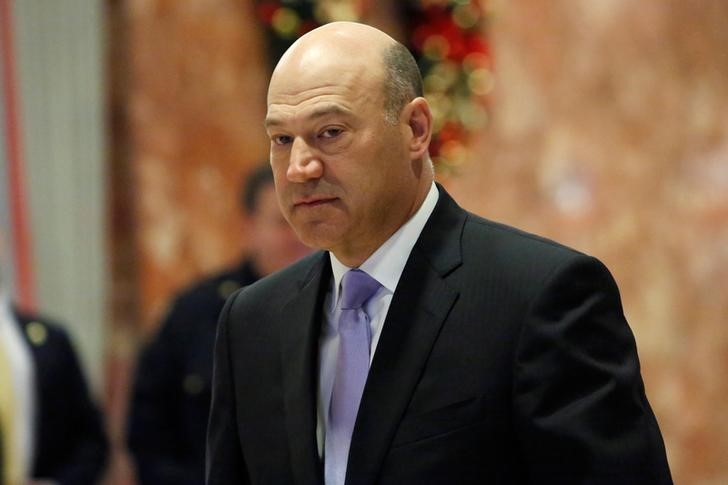By Pete Schroeder
WASHINGTON (Reuters) - White House economic adviser Gary Cohn said he backed bringing back the Glass-Steagall Act, a Depression-era law that would revamp Wall Street banks by splitting their consumer-lending businesses from their investment arms.
The National Economic Council director, also a former Goldman Sachs (N:GS) president, expressed support to lawmakers for a banking system where firms would focus primarily on trading and underwriting securities or issuing loans.
Big banks have strongly opposed such a move that would fundamentally overhaul their business. Reinstating the law, which was repealed in 1999, has not attracted significant attention in Congress, but advocates in the White House and both parties now argue it would provide critical safeguards to prevent another financial crisis.
Critics of that approach say it lacks nuance and would not have prevented the last financial meltdown.
The fact Cohn, widely viewed as one of Wall Street's own, was willing to push that position spooked big banks' representatives in Washington.
The White House confirmed Cohn's remarks in a private meeting with lawmakers on Wednesday. A spokesperson said he was "simply discussing the President's previously stated position" in favor of a "21st century Glass-Steagall."
Cohn's remarks were first reported by Bloomberg. https://bloom.bg/2nZK5n1
The Trump administration has indicated support for a return to Glass-Steagall. The White House has stuck by the idea since it was included in the Republican Party platform during the presidential campaign, and Treasury Secretary Steven Mnuchin expressed interest in a modernized version of the law.
When asked on Thursday when large financial institutions should begin to worry about Glass-Steagall becoming a reality, one industry representative said, "Right now."
However, any legislation establishing such a firewall faces long odds in the current Congress. The heads of the House and Senate banking committees have indicated support for alternative approaches, and efforts to move Glass-Steagall legislation in prior years have garnered little support.
"A new Glass-Steagall would require legislation, and it simply isn’t a priority issue in Congress," wrote Ian Katz, a financial policy analyst for the research firm Capital Alpha Partners, in a note to clients.
In the meeting which was arranged by Senate Banking Committee Chairman Mike Crapo, Cohn was asked by Senator Elizabeth Warren about Glass-Steagall. Cohn responded favorably, noting that the Republican Party platform supports the idea, according to sources familiar with the meeting. The meeting included lawmakers from both parties and their staff.
Bringing back Glass Steagall would likely have a significant impact on banks like JPMorgan Chase & Co (N:JPM), Bank of America Corp (N:BAC) and Citigroup (N:C) that have large highly intertwined commercial lending and investment banking operations, say analysts.

It would impact Goldman Sachs Group Inc (N:GS) and Morgan Stanley (N:MS) to a lesser degree although, they would likely have to revert to being standalone investment banks and shed their deposit funding.